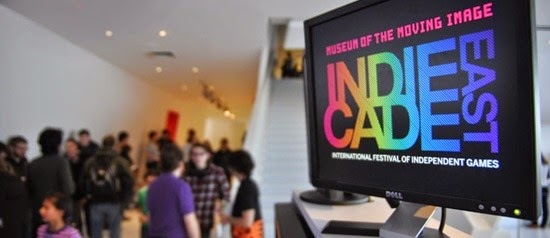
Indiecade East is back for another year in beautiful snow-filled New York City, and they are looking for talk proposals from new (as well as old, I imagine) voices in the community! You have until November 10th (that's about 3 weeks) to get your submission in:
If you have something new to say about / for / from independent game making, and you can encapsulate it in a 20-minute talk, we want to hear from you! Everyone is welcome, regardless of experience, visibility, etc.
We are particularly interested in these topics:
- Diversity in Audience, Diversity in Creators: Playing and making games is not the exclusive domain of a privileged few -- games are for everyone, and anyone should be able to make them.
- Indie Games’ Second Wave: Indie games have been around long enough that there are old-timers and newcomers. Who are the new generation of creators trying to break through in a different landscape?
- The Other Indies: There are many people making interactive art not traditionally thought of as indie games, from modders to interactive fiction writers. How do they enrich the world of indie games?
- Storytelling in Indie Games: Independent games are one of the spaces where narratives experiment with new forms and topics. What exciting new work or unappreciated old work is being done in this area?










